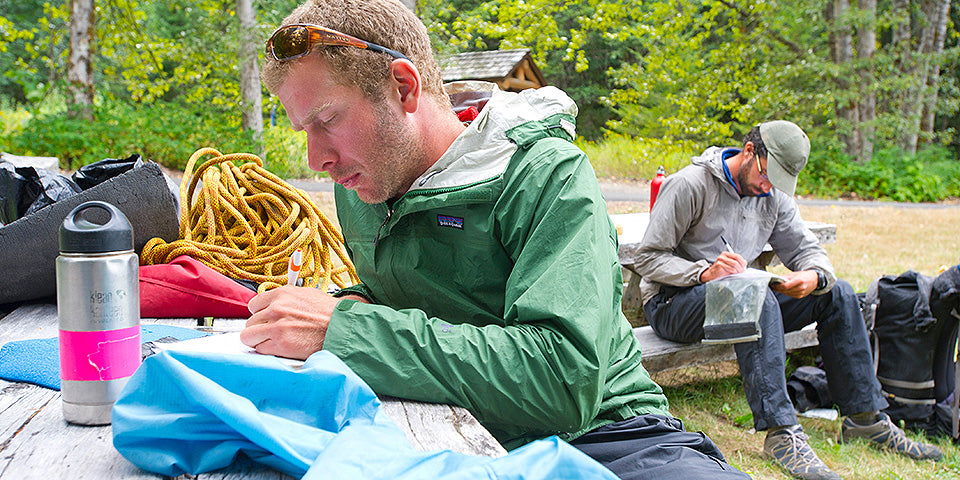Camping is a fantastic way to reconnect with nature and disconnect from the stresses of regular life. Tenting allows you to reconnect with nature while also allowing you to view vistas you've never seen before.
On a camping trip overseas, however, no one wants to have to deal with a medical issue. When you're camping in a remote place, it's frequently difficult to get good medical care because you're too far out of range to make a call for aid. You'll be more prepared to deal with an emergency while camping if you arm yourself with proper first-aid skills and an understanding of the hazards linked with your individual trip.
Here are a few pointers on how to cope with an emergency while camping abroad, so you can stay calm if it happens to you:
Make use of the equipment in your first-aid kit.

Never go camping without a first-aid kit. You'll be better prepared to address medical difficulties while away if you're well-stocked with emergency supplies, which is an absolute must for every camping vacation, whether at home or abroad.
Bring any drugs you take, including over-the-counter pain relievers and allergy treatments. Make sure you have enough gauze, bandages, rubbing alcohol, hydrogen peroxide, tweezers, small scissors, tape, and other supplies on hand to clean and patch wounds, remove ticks, and so on.
Take a course.

It's also a good idea to attend a training on the Heimlich Maneuver and CPR before your vacation, in addition to having a first aid box and learning how to use the stuff in it. These are life-saving techniques that you'll need at any time when on a camping vacation far from home.
Make sure you have everything you'll need.

Being adequately prepared for the various potential dangers that can occur when camping is one of the greatest methods to deal with camping situations. This begins with ensuring that you have all of the necessary camping gear. If you're camping in bear country, make sure you have bear spray on hand and keep all food and food leftovers out of your camping area. Always have water treatment tablets or a water purification equipment with you in case you get stranded out in the woods for longer than you planned. While you might be able to go weeks without food, you won't be able to last more than a few days without clean drinking water. Check out our survival kits for everything you need to face the wilderness.
Bring your cell phone.

Though you may wish to disconnect when camping, it's a good idea to bring your phone in case of an emergency. Make a list of emergency numbers in your phone and make sure you have a charging cable with you so you can be confident you'll be able to use it.
Even if you don't have cell service when camping, mobile phones are still useful for making emergency calls, and in the United States, cell providers are required by law to take any and all emergency 911 calls, regardless of your cell phone plan (roaming, bills paid, etc).
Know the difference between Hypothermia and Hyperthermia and how to treat them.

Body temperatures that are too low or too high can be deadly, especially if you're out in the elements and can't get to a temperature-controlled area immediately. As a result, while camping, you must know how to cure both hypothermia and heat. In these emergency scenarios, the thermometer you carried in your first aid box will be very useful.
Hypothermia: To treat hypothermia, which is defined as a body temperature below 35°C, determine the source of the temperature drop. Wet clothing should be removed and replaced with dry clothing. Make the person consume warm broth or drinks to increase his or her body temperature, and be prepared to leave the campsite for the nearest medical facility if the situation does not improve.
Hyperthermia: If someone has a high body temperature and is experiencing dizziness, wet skin, or nausea, you should take actions to prevent heat stress, heat stroke, or heat exhaustion.
If you don't have an air-conditioned cabin, take the person out of the sun and into a covered area. If necessary, a tarp can be used to provide shade. While you contact for help from emergency services or transport the person to the nearest hospital, make sure the person drinks water and removes warm clothing.
Update your health insurance for travel.

Before going on a camping vacation, be sure your health insurance is up to date, and that your policy covers coverage for emergency medical evacuations. Expenses associated with a medical emergency that necessitates you to travel to the nearest certified medical facility are usually covered by evacuation coverage.
It's always better to be safe than sorry, so it won't hurt you to prepare a little extra for your next camping trip. Take these simple tips, and stay safe out there!

